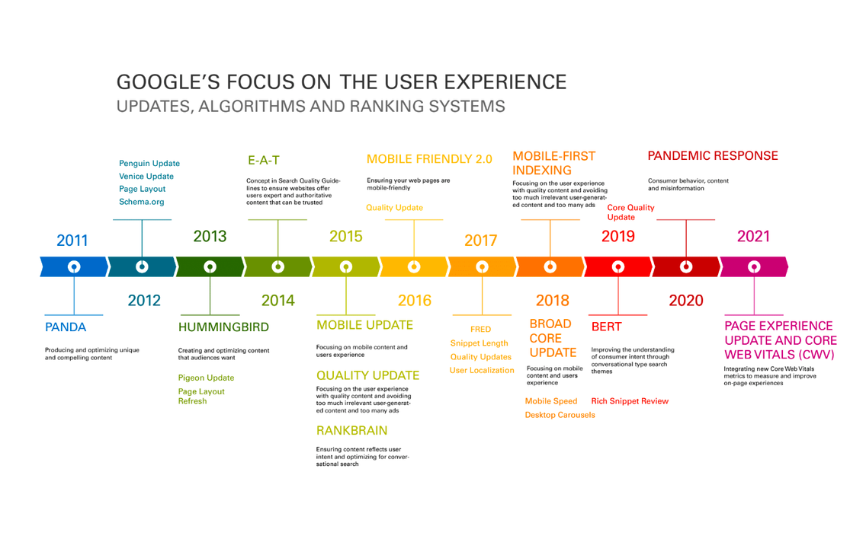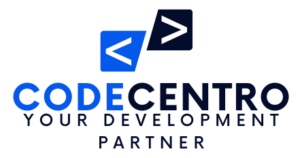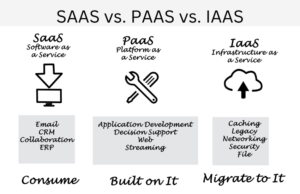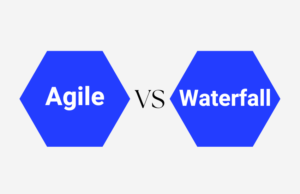Search Engine Optimization (SEO) is the practice of improving your web page’s ranking and creating a digital presence of your business over web rankings in search engines such as Google, Bing, and Yahoo! This helps increase traffic from search engines and leads to higher conversions. In short, SEO improves the visibility of your site or blog in search engines.
I am sure you’ve heard the term SEO many times but do you know what SEO is?
Search engine optimization is a marketing technique and an essential part of any digital marketing strategy employed by businesses to improve their rankings in search engines. The goal is to attract visitors to a particular webpage who then become customers. Various aspects are involved in optimizing a website for search engines, such as keyword research, page titles, meta tags, internal links, etc.
Benefits of SEO for Businesses
Search Engines are the Foremost Source of Traffic
Whenever someone needs some information, they go to the search engine to find helpful information related to their query, whether related to buying something or wanting to learn something.
This is called “organic search,” and it’s the primary traffic source for most businesses. If your business is not appearing in your niche’s targeted search query, you may lose your potential customers and users. Organic search gets most of its traffic directly from users typing into Google or another search engine. Because it’s a form of direct traffic, it does not count toward your AdWords budget. But it still affects your overall success in PPC advertising.
SEO builds Trust & Credibility
Having a solid SEO strategy is crucial for growing your online business presence. While SEO is often thought of as a long-term investment, it’s really just a part of building brand awareness and credibility.
1. It builds trust. People trust brands that appear near the top of search results.
2. It brings in customers. Customers who see your products or services listed near the top of a search result are much more likely to click on your listing and visit your website.
3. It increases conversion rates. Visitors who land on a page with a strong SEO strategy are more likely to convert into leads and sales and becomes your potential customer.
SEO is Very Cost-Effective but Cheaper than Paid Advertisements
SEO is relatively inexpensive than PPC or paid ads, but it does require patience and persistence. You will need to spend hours developing content and optimizing your site for search engines before you begin seeing results. However, if you keep on it, you’ll eventually reap the rewards.
SEO requires dedication. While SEO is relatively inexpensive, it’s not a quick process. It takes time and effort to develop a successful SEO strategy. If you’re not willing to put in the work required to achieve success, you shouldn’t bother doing anything about SEO.
SEO is highly competitive. Many companies use SEO to generate leads and sales. To stand out in the competitive market, you’ll need to become an authority in your area and offer unique services or solutions. Competing against businesses that already have established reputations makes it increasingly difficult to attract prospects.
Search engines rank websites based on several factors, including high-quality content, user-friendliness, backlinks, and relevancy. These factors determine whether a website appears near the top of search engine results pages (SERPs), which makes SEO extremely valuable. If you can rank well in SERPs, you could easily earn thousands of dollars each month simply by referring visitors to your site.
It’s a Long-Term Strategy
While SEO is often thought of as a short-term activity, it requires a long-term strategic approach. If you think about it, every single piece of content you write today could be outdated tomorrow.
So how do we ensure our strategies remain relevant and adequate? We constantly evaluate what works and what doesn’t work. And we adapt accordingly. That’s why it’s crucial to keep track of what’s working and not.
A good SEO strategy should include regular evaluation of performance metrics.
What are the most Essential Elements of SEO?
It’s no secret that Google ranks websites based on relevance and authority. But exactly how does Google decide whether or not a website deserves to rank highly? What factors and elements are involved in this? If you don’t follow the proper SEO tactics and techniques, all SEO efforts will be wasted.
Strong and Relevant Keywords
One of the biggest mistakes businesses make when trying to get ranked on Google is going into the keyword research phase without knowing exactly who their customers and audience are. Without a clear idea of who your ideal customer is, you may spend hours doing keyword research only to discover that no one is searching for what you were thinking.
For example, if you sell accounting services, you might start by creating a spreadsheet with all the common questions your potential clients would likely ask. Then, you could look for keywords related to each question. Once you’ve done this, you’ll be able to narrow down your keyword research to just a few key topics your ideal client is searching for.
Also, remember to use long-tail keywords instead of short ones. Short keywords typically result in low clickthrough rates because of high search volume, while long-tail keywords usually lead to higher clickthroughs. This is another reason why it’s crucial to conduct thorough keyword research.
High-Quality Content
Google always wants to provide searchers with the best possible experience when they visit a website. When someone types a query into the search bar, they expect to see relevant content search results. That’s why Google uses a variety of factors when deciding whether or not to display a particular outcome in search engine ranking. These factors include relevance, authority, trustworthiness, and popularity.
Relevance refers to whether or not the content matches the keyword used in the search query. Authority refers to whether or not other sites link back to your site. Trustworthiness refers to whether or not your site appears legitimate based on the type of domain name you use, your contact information, and your business hours which you can add through google my business. Popularity refers to how many visits your site receives each month.
One thing is sure, though: Google takes a holistic approach to web searches. While it’s true that some aspects of a website can influence how it ranks, it’s also true that overall performance matters. For example, if you have a poorly-designed website full of broken links, then it’s unlikely that you’ll ever catch the eye of Google. Conversely, if you create a beautiful, user-friendly site that offers helpful content, you can count on Google to reward you with higher rankings.
Off-Page SEO
There are two types of off-page SEO: external linking and citation building. External linking involves finding other sites that give backlinks to you, while citation building refers to the act of citing other sources within your content. Both methods play a role in helping your website rank higher in search engines.
External linking is much easier to implement than citation building, but both are effective ways to boost your ranking. When you build links to other websites, internally or externally, try to focus on authoritative sites. These are sites that aren’t just popular but ones that also have strong authority scores.
Authority scores are determined based on factors including the number of incoming links to a particular site, the age of the domain, the amount of unique content on the site, and the popularity of the topic covered by the website. Sites that cover topics with a lot of interest tend to have higher authority scores, making them ideal targets for link-building.
Authority of your Website
Having authority in your niche is key to ranking highly on Google. But precisely what does that mean?
There are two types of authority: external and internal. External authority refers to whether someone else thinks you’re credible or trustworthy in your expertise. Internal authority refers to whether other experts agree that you’re knowledgeable and you have authority in your field, and your web has quality content.
External authority is measured by the number of relevant and quality backlinks pointing to your site. Backlinks are references to your website that appear somewhere else online.
Internal authority is much harder to measure but is still very important. Asking other experts in your industry how they feel about your business is a great way to gain insight into your credibility. Ask questions like: What are the most trusted companies in our industry? Who are the biggest players? How do they compare to us? What are the benefits of working with them? These questions will allow you to learn more about who others trust in your space and how they view you compared to your competition.
A Good User Experience Leads to more Organic Traffic

Yes! User experience is one of the most important aspects of ranking a website in search engine rankings. So if your site is hard to navigate or doesn’t load quickly, Google won’t rank it highly. This means fewer clicks to find your content and fewer conversions.
Good UX and UI design improve usability and increase conversion rates. And now the world has changed most people prefer to shop online rather than physically visit stores, providing a pleasant shopping experience helps convert more sales.
To optimize your site for SEO, consider these tips:
1) Make navigation simple and intuitive.
2) Use clean, uncluttered layouts.
3) Provide ample white space.
4) Include descriptive titles and H tags.
5) Use unique meta descriptions.
6) Optimize your images.
7) Clean up your code.
8) Add alt attributes to all images.
Local SEO
Local Search Optimization is one of the most effective ways to attract customers online. People who live near a business tend to trust it more than someone based elsewhere. As a result, they’re more likely to visit a store or restaurant when they see it listed first in their area. That means you have a better chance of getting new clients or sales leads.
Local SEO focuses on optimizing your digital properties for specific areas. For example, if you own a bakery, you might want to optimize your bakery for a town nearby. You should list your business in google my business to appear in your nearby areas or towns whenever they are searching for a bakery.
SEO is not going anywhere
Search engine optimization (SEO) is not going away anytime soon. You have heard this sometimes that SEO is dead and it’s going etc. This is not true, and SEO is not going anywhere. SEO will exist till the content exists on the web. However, search engines have become smarter and smarter over the years, and now they can interpret content better than ever. Search engine optimization (SEO) is still very much alive and well today.
Conclusion
Over the last several years, SEO has expanded significantly and become more complex. As a result, there have been many changes to how businesses can use SEO effectively. New strategies work better than others, and some old tactics aren’t effective anymore. While these changes make SEO harder, they also bring tremendous benefits to businesses. They allow businesses to target specific audiences and drive traffic to their sites.






